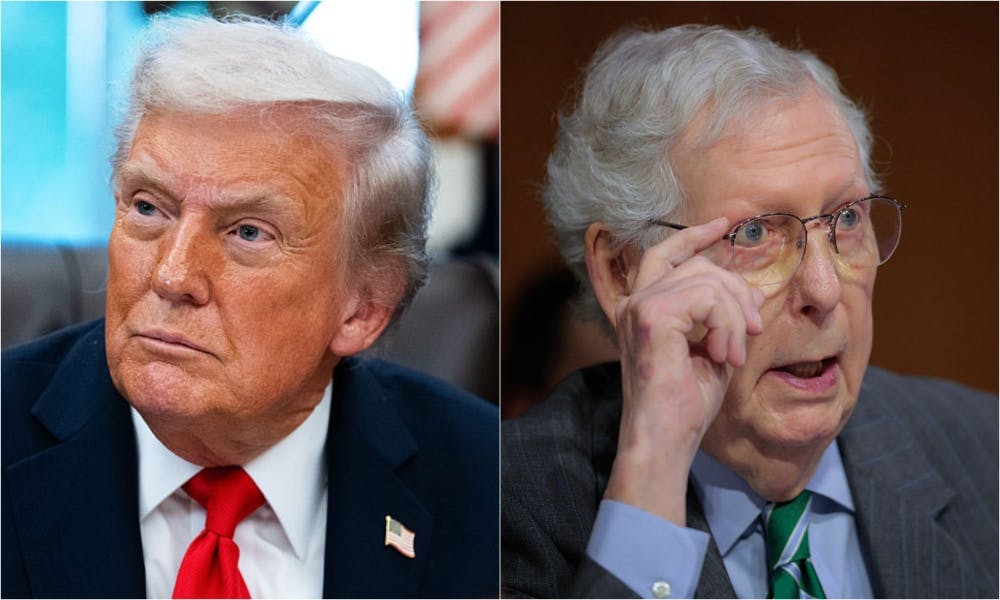
www.dailywire.com
Five Senate Republicans Buck White House In Vote Against Trump’s Tariffs
Five Senate Republicans joined with Democrats on Tuesday in a vote denouncing President Donald Trump’s tariffs on Brazil.
Sens. Susan Collins of Maine, Mitch McConnell and Rand Paul of Kentucky, Lisa Murkowski of Alaska, and Thom Tillis of North Carolina sided with Senate Democrats in a 52 to 48 vote against the president’s trade policy, exposing a small rift in the GOP between the president and some lawmakers.
“Protectionists eagerly celebrate the revenue from tariff duties. But they don’t talk nearly as much about how much of that revenue they’ll spend protecting American growers and producers from the avoidable harm of their policies,” McConnell said in a statement defending his vote.
“Tariffs make both building and buying in America more expensive. The economic harms of trade wars are not the exception to history, but the rule. And no cross-eyed reading of Reagan will reveal otherwise,” he continued, referencing the late President Ronald Reagan, whose support for free trade became news recently because of an anti-tariff advertisement purchased by the Ontario government.
The Senate’s Tuesday resolution against Trump’s Brazil tariffs is symbolic, and it is not expected to receive a vote – much less pass – in the House. Additional resolutions on Trump’s tariffs are expected to receive votes in the Senate this week.
Vice President JD Vance warned Republicans ahead of the vote not to side against the president in the symbolic gesture, calling a move to buck to White House on tariffs a “big mistake,” according to The Washington Examiner.
Join us now during our exclusive Deal of the Decade. Get everything for $7 a month. Not as fans. As fighters. Go to DailyWire.com/Subscribe to join now.
“The point that I made to my Republican colleagues, recognizing there’s a diversity of opinions about it, is that the tariffs give us the ability to put American workers first,” said Vance after meeting with GOP senators on Tuesday. “They force American industry to reinvest in the United States of America instead of a foreign country.”
Prior to Trump’s trade wars, U.S. tariffs on Brazil were roughly 3% in line with its status as a Most Favored Nation for U.S. trade. Brazil’s tariffs on U.S. goods were higher at around 11%, according to the White House.
In April, Trump unveiled sweeping tariffs, placing a minimum 10% levy on all nations, with some receiving a much higher tariff. In July, Trump threatened to hike tariffs on goods from Brazil up to 50% because of its treatment of former President Jair Bolsonaro, who was sentenced to 27 years in prison after Brazil’s left-wing government accused him of attempting to overthrow democracy.
Since coming into office in January, Trump has aggressively sought to remake the world’s trade lines, levying relatively exorbitant tariffs on enemies and allies. Through unilateral action on tariffs, Trump has sought to eliminate U.S. trade deficits and to establish leverage for action on drug trafficking and ending international conflicts.
Trump has cited emergency authority under the International Emergency Economic Powers Act to issue most of his tariffs. The president’s tariff authority under the act is currently under review at the Supreme Court.
The president has said if his administration loses the case, the United States “will be a weakened, troubled, financial mess for many, many years to come.”










